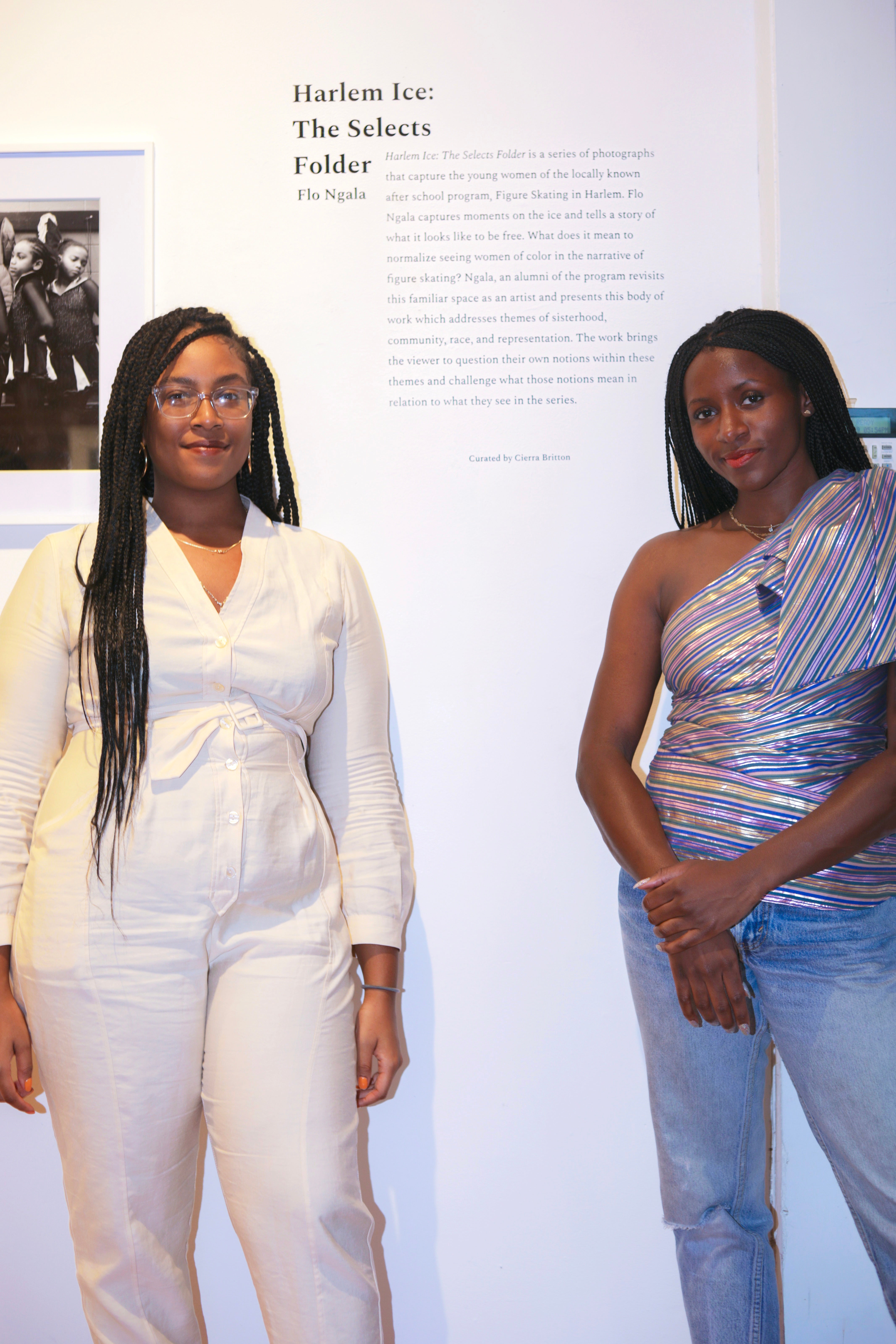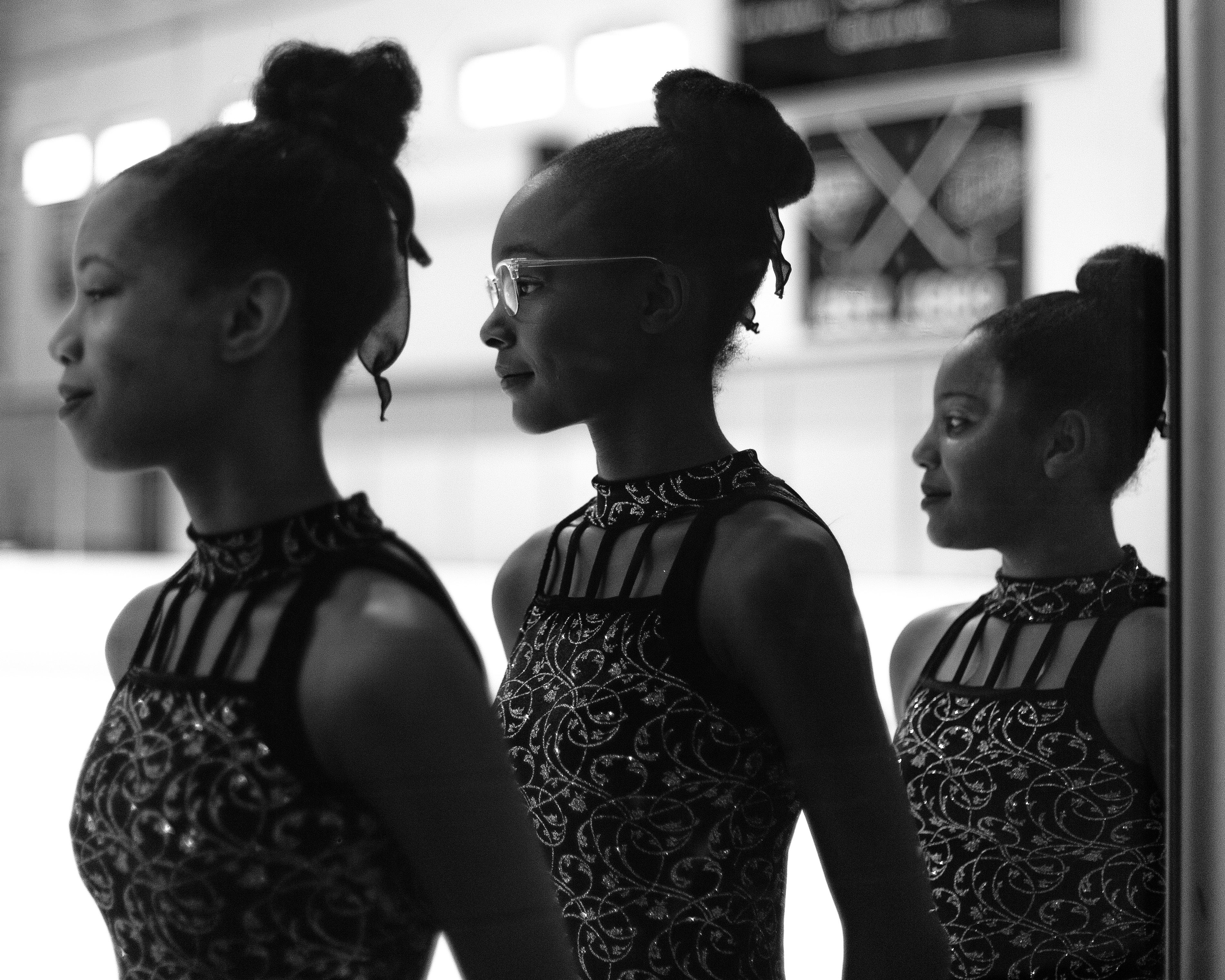When celebrity photographer Flo Ngala reached out to the New York Times earlier this year, she did not know how much it would impact her life. While the crux of her professional work has consisted of pointing her lens on the likes of Cardi B, Gucci Mane, and Remy Ma, that one little email sparked one of the best and most personal art of her career thus far.
In the article “When I Skate It Just Feels Free,“ Ngala, 24, who spent nearly 10 years ice-skating with the academic and leadership enrichment program for girls of color Figure Skating In Harlem (FSH), went back to the rink to capture the newest generation of skaters, landing her stunning black and white photos on the iconic newspaper’s front page.
Now ten months later, her passion project has become her first solo exhibition to date. Displaying twenty pictures, mostly unseen from the original Times project, “Harlem Ice: The Selects Folder,” is a love letter to the African-American and Latina girls and teens “who express their freedom through skating, sisterhood, and community.”
“Before photography, skating was my first passion and FSH was such a huge part of my life. They taught me the importance of training, making goals and persistence, all traits I’ve needed to succeed as a photographer,” Ngala told Essence.
“I wouldn’t be where I am today without the organization, so to be able to bring together my two passions is amazing and feels full circle.”

The exhibit’s curator and producer Cierra Britton, 23, shared that putting the show together felt serendipitous because shortly after randomly meeting Ngala —the photographer stumbled into her job asking for a computer charger—the owner of the Compère Collective Gallery in Red Hook, Brooklyn, asked Britton did she know of an artist who could showcase their work to help raise money for FSH. Instantly, Ngala came to mind.
“She already had this amazing body of work and so many that no one had seen before. I was just blown away by it,” Britton said.

At first glance, the array of photos show the skaters in their glory, showing off their gleaming white skates and sequined leotards and they glide across the ice like ballerinas. Looking longer and harder at the exhibit, the photos radiate teamwork, determination and the hard work that goes into excelling in this sport and in life. But most important, they are a full display of the power of Black Girl Magic, utter joy and plain old fun, which is sorely missing from art and pop culture when it comes to everyday black women and girls.
“There is this joyful feeling because they are doing what they love. For example, one girl fell and the girls surrounded her, making her feel better. These young women have found happiness and love and you see the dedication as they cheer each other on,” says Ngala.
She adds that the exhibit also provides much-needed inspiration for a younger generation of skaters.
“Seeing women like Debbie Thomas and Surya Bonaly, who made their mark in skating, inspired me when I was younger. That’s the power of representation. Even now, seeing Serena Williams and Simone Biles dominate in their sports, all of that matters to black girls who need to see someone like them,” she says.
For Britton, one of “Harlem Ice’s” goals is to also change perceptions about who can be a skater in a historically white sport.
“When you think of Black women, what do you think of ice skating? Do you put those two together? If not, why? Whether you come with that perspective or not, you will leave wanting to know the answer.”
The overwhelming turnout and response to this exhibit prove that there is a hunger for this type of art. The show’s opening night on October 13 was packed with more than 100 people who made their way to Red Hook.
“A man told me that he stepped outside and cried because he was so touched by the work,” Ngala shared. “As an artist, that meant so much to me because I wanted for this to be a real, authentic and intimate look at these young girls.”
While the exhibit ends on the 26th of October, Ngala hopes that the images can live on with a possible traveling exhibit across the country.
“We want for viewers to feel the importance of this kind of storytelling, and how crucial it is to amplify narratives surrounding the necessity of access and the power in opportunity.”
To learn more about “Harlem Ice” visit flongala.com/harlem-ice.
